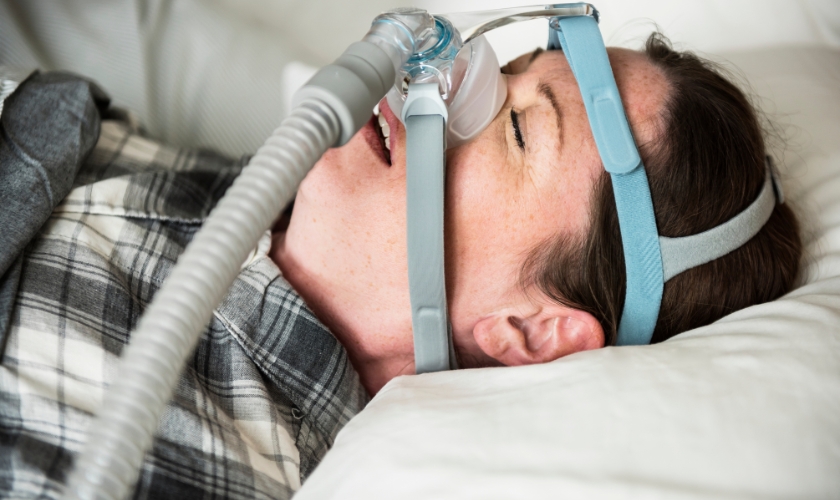Book An Appointment

In today’s fast-paced world, where stress and hectic schedules often take a toll on our health, one crucial aspect that is frequently overlooked is the quality of our sleep. Enter the sleep dentist, a specialized healthcare professional dedicated to enhancing your overall well-being. This unique branch of dentistry focuses on addressing sleep-related issues such as snoring, sleep apnea, and other sleep disorders, which can significantly impact your health. By tailoring treatments to improve your sleep quality, sleep dentists can help you enjoy a more restful and restorative slumber. In this article, we will explore 60 remarkable characteristics of how a sleep dentist can contribute to your overall health and well-being, highlighting the transformative power of better sleep.
The Link Between Oral Health and Sleep
A. How Oral Health Issues Impact Sleep Quality
Quality sleep is essential for overall well-being, and it may come as a surprise that oral health plays a significant role in determining the quality of your rest. Here are two ways in which oral health issues can affect sleep quality:
1. Oral Infections and Inflammation: Oral health issues such as gum disease, tooth decay, and oral infections can lead to inflammation in the oral cavity. This inflammation can obstruct the upper airway, making it difficult to breathe during sleep. As a result, you may experience disrupted sleep patterns, including frequent awakenings and loud snoring.
2. Tooth Misalignment and Bite Problems: Malocclusion or misaligned teeth and bite problems can contribute to sleep-related issues. When your teeth and jaw are not properly aligned, it can affect the position of your tongue and other soft tissues in the mouth, potentially leading to snoring and, in more severe cases, sleep apnea.
B. Common Sleep-Related Problems Associated with Oral Health
Understanding the connection between oral health and sleep quality is vital. Here, we delve into common sleep-related problems that can arise due to oral health issues:
1. Snoring: Snoring is a common sleep problem often caused by the vibration of soft tissues in the throat, partially obstructing the airway during sleep. Poor oral health, such as enlarged tonsils, a deviated septum, or misaligned teeth, can contribute to snoring.
2. Sleep Apnea: Sleep apnea is a more serious condition where breathing repeatedly stops and starts during sleep. Obstructive sleep apnea (OSA) is often linked to oral health issues, particularly when the tongue and soft palate collapse to block the airway.
By addressing these oral health issues, you can not only improve your overall oral health but also enjoy a better night’s sleep, leading to enhanced overall health and well-being.
The Role of a Sleep Dentist
A. Qualifications and Expertise of a Sleep Dentist
When it comes to improving your sleep and overall well-being, a sleep dentist is a specialized healthcare professional with unique qualifications and expertise. Here’s an explanation of what makes them stand out:
– Dental Education: Sleep dentists are trained dental professionals who have completed the necessary education and training to become licensed dentists. They have a strong foundation in general dentistry.
– Additional Specialization: What sets sleep dentists apart is their additional specialization in dental sleep medicine. This means they’ve pursued further education and training in diagnosing and treating sleep-related issues, such as snoring and sleep apnea.
– Advanced Diagnostic Skills: Sleep dentists are proficient in conducting comprehensive assessments of your oral and upper airway health. They can identify oral health problems and anatomical issues that contribute to sleep disturbances.
B. Range of Treatments and Solutions Offered by Sleep Dentists
The expertise of a sleep dentist extends to a wide array of treatments and solutions tailored to address your specific sleep-related issues. Here’s a highlight of the diverse range of services they offer:
– Oral Appliances: Sleep dentists can custom-fit oral appliances, such as mandibular advancement devices (MADs) or tongue-retaining devices (TRDs), to help reposition the jaw and tongue during sleep. These appliances can prevent airway obstruction and alleviate snoring and sleep apnea.
– Lifestyle Recommendations: In addition to oral appliances, sleep dentists may provide lifestyle recommendations to improve sleep hygiene. This can include advice on weight management, exercise, and dietary changes, all of which can have a positive impact on sleep quality.
– Collaboration with Sleep Physicians: In more complex cases, sleep dentists often collaborate with sleep physicians to ensure comprehensive care. This may involve a combination of treatments, including continuous positive airway pressure (CPAP) therapy and surgical interventions.
– Follow-Up and Monitoring: Sleep dentists offer ongoing care, including regular follow-up appointments to assess the effectiveness of treatments and make adjustments as needed to optimize your sleep and well-being.
By seeking the expertise of a sleep dentist, you gain access to a range of treatments and solutions designed to address the root causes of your sleep issues, ultimately contributing to improved health and well-being.
Benefits of Consulting a Sleep Dentist
A. Potential Health Benefits of Improved Sleep
Consulting a sleep dentist can lead to a myriad of health benefits, and it’s essential to understand how improved sleep can positively impact your overall well-being. Here are some key health benefits associated with better sleep:
1. Enhanced Cognitive Function: Quality sleep is crucial for optimal cognitive function. By consulting a sleep dentist and addressing sleep-related issues like sleep apnea, you can experience improved memory, concentration, and decision-making abilities.
2. Cardiovascular Health: Quality sleep is closely linked to heart health. Treating sleep disorders can lower the risk of high blood pressure, heart disease, and stroke, as it allows your cardiovascular system to function more efficiently.
3. Weight Management: Poor sleep can disrupt the balance of hormones that regulate appetite and metabolism. By improving your sleep, you can better manage your weight and reduce the risk of obesity.
4. Emotional Well-being: Sleep plays a significant role in regulating emotions and mood. Improved sleep can lead to reduced irritability, anxiety, and depression, resulting in better emotional well-being.
5. Reduced Risk of Accidents: Sleep-deprived individuals are more prone to accidents, both on the road and in daily life. Addressing sleep issues can significantly reduce the risk of accidents.
B. Personal Anecdotes or Case Studies
Sharing personal anecdotes or case studies can provide a more relatable perspective on the benefits of consulting a sleep dentist. Here are a couple of examples:
Case Study 1 – John’s Journey to Better Sleep:
John, a middle-aged individual, suffered from loud snoring and frequent daytime fatigue. He consulted a sleep dentist who diagnosed him with sleep apnea. After a few months of treatment with a custom-fitted oral appliance, John experienced remarkable improvements in his sleep quality. His snoring diminished, and he woke up feeling refreshed. As a bonus, his blood pressure dropped, and he felt more alert during the day.
Anecdote 2 – Sarah’s Success Story:
Sarah, a young professional, used to struggle with chronic insomnia and frequent nighttime awakenings. Her productivity at work suffered, and her stress levels were through the roof. After visiting a sleep dentist, she received personalized advice on improving her sleep hygiene and relaxation techniques. Over time, Sarah’s sleep improved, and so did her focus, creativity, and overall mental health. She’s now better equipped to handle the challenges of her demanding job.
These personal stories and case studies exemplify how consulting a sleep dentist can lead to transformative improvements in the quality of life and overall health, emphasizing the real-world impact of such consultations.
How a Sleep Dentist Can Improve Your Health
1. Enhanced Sleep Quality: Sleep dentists specialize in diagnosing and treating sleep-related issues, such as snoring and sleep apnea, which can profoundly impact your sleep quality. By addressing these problems, sleep dentists can help you achieve more restful, uninterrupted sleep. This improvement in sleep quality has a domino effect on various aspects of health, including cognitive function, mood, and cardiovascular health.
2. Customized Treatment: Sleep dentists offer personalized treatment plans tailored to your specific needs. They can provide oral appliances or other interventions that align with your unique oral and airway anatomy. This individualized approach ensures that you receive the most effective and comfortable solutions, leading to better compliance and greater health benefits.
The Consultation Process
A. What to Expect During a Visit to a Sleep Dentist
When you schedule a consultation with a sleep dentist, you can anticipate the following:
– Comprehensive Assessment: Your visit will typically begin with a thorough evaluation of your oral and upper airway health. This assessment may include examining your teeth, jaw structure, and soft tissues to identify any issues that could be affecting your sleep.
– Discussion of Symptoms: You will have the opportunity to discuss any sleep-related symptoms you’re experiencing, such as snoring, excessive daytime sleepiness, or pauses in breathing during sleep. This information helps the sleep dentist understand your specific concerns.
– Diagnostic Tests: In some cases, diagnostic tests like a sleep study (polysomnography) may be recommended to assess the severity of your sleep disorder. This study is often conducted at a sleep clinic or in the comfort of your own home.
– Customized Treatment Plan: Based on the assessment and any diagnostic results, the sleep dentist will create a customized treatment plan. This plan may include recommendations for lifestyle changes, the use of oral appliances, or collaboration with sleep physicians for more complex cases.
B. Addressing Common Concerns or Misconceptions
Common concerns or misconceptions that may arise during a visit to a sleep dentist include:
– Discomfort with Oral Appliances: Patients may worry that oral appliances will be uncomfortable to wear during sleep. Sleep dentists can address these concerns by explaining that the appliances are custom-fitted for comfort and effectiveness.
– Effectiveness of Treatment: Some individuals may question the effectiveness of dental treatments for sleep disorders. Sleep dentists can provide evidence-based information on the success rates of various treatments and how they can improve sleep quality.
– Cost and Insurance Coverage: Financial concerns are common. Sleep dentists can clarify the costs involved and discuss potential insurance coverage or financing options.
– Lifestyle Changes: Patients may be hesitant to make lifestyle changes. Sleep dentists can emphasize the importance of these changes and offer guidance and support in implementing them.
A visit to a sleep dentist is a collaborative process where concerns and misconceptions can be addressed, ensuring that patients feel informed and comfortable with their treatment plan.
Lifestyle Changes and Sleep Hygiene
A. Importance of Maintaining Good Sleep Habits
Maintaining good sleep habits, often referred to as sleep hygiene, is essential for overall well-being and complements the care provided by sleep dentists. Here’s why it’s crucial:
– Optimal Sleep Quality: Good sleep habits promote deeper and more restorative sleep. They ensure that you spend enough time in the various sleep cycles, including the crucial rapid eye movement (REM) stage, which is essential for cognitive function and emotional well-being.
– Consistency: A regular sleep schedule helps regulate your body’s internal clock, making it easier to fall asleep and wake up at the desired times. This consistency leads to improved sleep quality and overall health.
– Reduction of Sleep Disturbances: Practicing good sleep hygiene reduces common sleep disturbances, such as frequent awakenings during the night, which factors like caffeine or alcohol consumption can exacerbate before bedtime.
– Enhanced Daytime Function: Well-maintained sleep habits lead to improved alertness, productivity, and mood during the day. This positively impacts your mental and physical health, as you are better equipped to handle daily challenges.
B. Tips for Improving Sleep Quality in Addition to Dental Care
In addition to the care provided by sleep dentists, there are several lifestyle changes and sleep hygiene practices that can enhance sleep quality:
1. Create a Relaxing Bedtime Routine: Wind down before bedtime with calming activities such as reading, taking a warm bath, or practicing relaxation exercises. These rituals signal to your body that it’s time to sleep.
2. Maintain a Consistent Sleep Schedule: Go to bed and wake up at the same time every day, even on weekends. Consistency reinforces your body’s internal clock.
3. Limit Screen Time: The blue light emitted by screens can disrupt your sleep-wake cycle. Avoid electronic devices like smartphones and computers at least an hour before bedtime.
4. Watch Your Diet: Avoid large meals, caffeine, and alcohol close to bedtime. These substances can interfere with your ability to fall and stay asleep.
5. Create a Comfortable Sleep Environment: Ensure your bedroom is conducive to sleep by keeping it dark, quiet, and at a comfortable temperature. Invest in a good mattress and pillows that provide proper support.
6. Stay Active: Regular exercise can improve sleep quality, but try to finish vigorous workouts a few hours before bedtime.
7. Manage Stress: Practice stress-reduction techniques, such as meditation or deep breathing exercises, to alleviate anxiety that may interfere with sleep.
These lifestyle changes and sleep hygiene practices, when combined with the care of a sleep dentist, can lead to a holistic approach to improving your sleep quality and overall health.
The role of a sleep dentist in enhancing your health and well-being is undeniable. By addressing sleep-related issues and promoting better sleep quality, sleep dentists contribute to a cascade of positive effects on your physical and mental health. The personalized care, custom treatments, and expertise they offer not only lead to more restful nights but also help mitigate the risks associated with sleep disorders. However, it’s essential to remember that a holistic approach, including maintaining good sleep habits and practicing sleep hygiene, plays a vital role in maximizing the benefits of sleep dentistry. By collaborating with a sleep dentist and embracing positive lifestyle changes, you can embark on a journey to healthier, more rejuvenating sleep and an overall improved quality of life.




